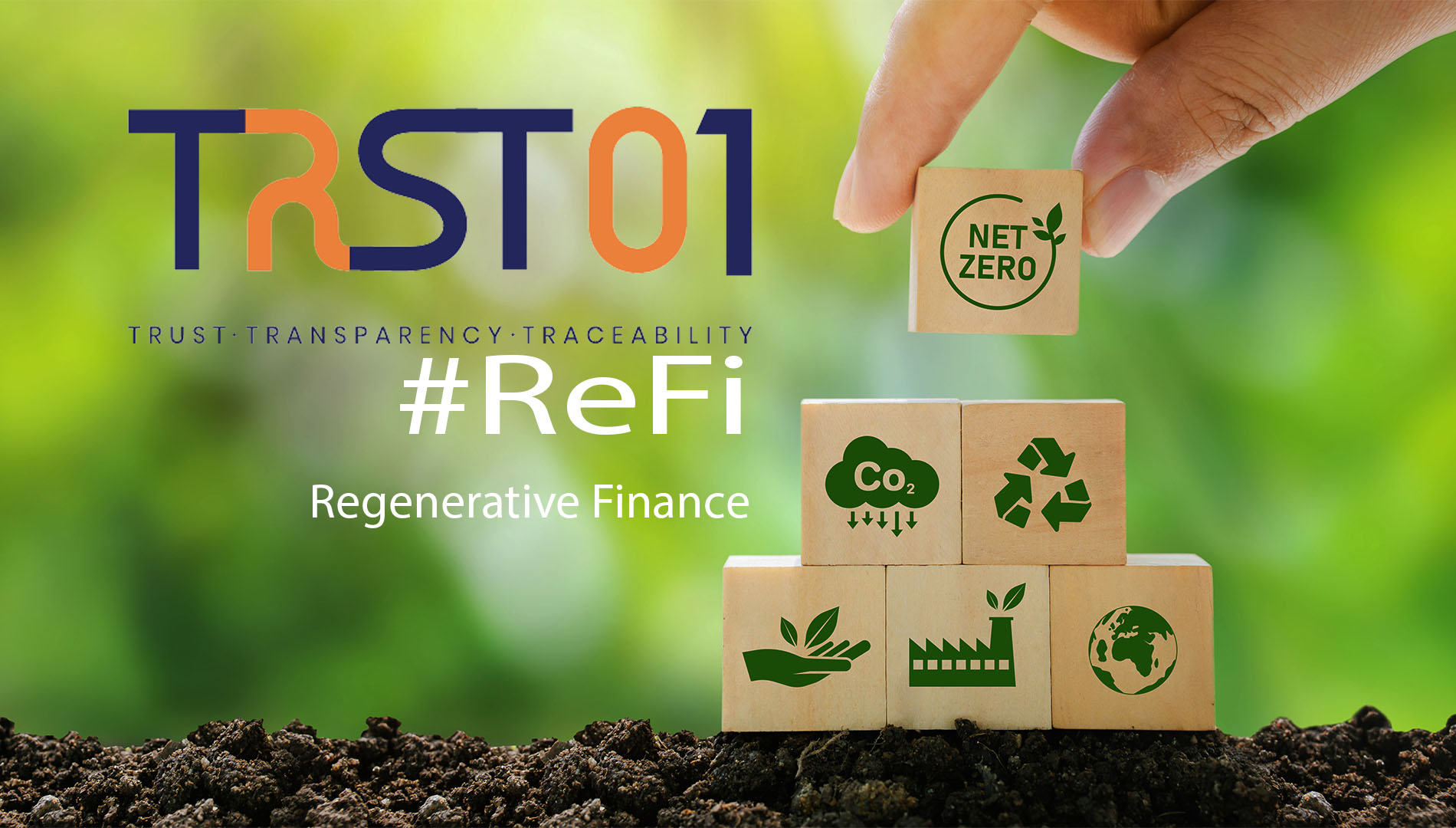Regenerative Finance (ReFi)
19 Sept 2022 | Climate Change | Climate Action| Web3.0

What is ReFi?
A term coined from Regenerative Economy and Decentralized Finance
“ReFi” or Regenerative Finance.
A regenerative Economy means moving away from extractive business models and unlocking the potential for positive contributions to climate, Nature and society.
Regenerative Value translation through a secure distributed decentralized mode is ReFi.
Businesses can be environmental, Socially, and simultaneously economically positive by focusing on limiting ecological emissions.
In 2015, John Fullerton wrote Regenerative Capitalism, a paper describing eight principles that could underpin a new economic system that delivers shared prosperity on a thriving planet. In the article, he narrated.
The universal patterns and principles the cosmos uses to build stable, healthy, and sustainable systems throughout the real world can and must be used as a model for economic-system design.

The eight principles describe how it shows up in Nature, how it shows up in Business, and what an individual can do to embody it and bring it more to life in the world. It is expanding human consciousness to Nature, the environment and the surroundings.
Principle #1: In Right Relationship
There is a growing momentum to see beyond shareholders’ value maximization. Corporations include Environment, Social and Governance measures in their Business Report.
Principle #2: Views Wealth Holistically
Wealth is beyond one just Financial goals; Perhaps it is a satisfying social network, access to parks and natural spaces, the ability to pursue curiosity and develop intellectually, or spiritual fulfilment.
Principle #3: Innovative, Adaptive, Responsive
To Solve problems creatively. Let us create Businesses that do that well are the ones that survive. Creative business models are often the best at not only solving challenging issues in a way but also benefiting local communities and the planet.
Principle #4: Empowered Participation
Decentralized leadership is a way to ensure everyone has a voice and buy-in to the company’s goals and empowers professional relationships. Support policies that are good for both people and the planet.
Principle #5: Honors Community and Place
Each human community consists of peoples, traditions, beliefs, and institutions uniquely shaped by long-term pressures of geography, human history, culture, local environment, and changing human needs.
A Regenerative Economy nurtures healthy and resilient communities and regions, each uniquely informed by the essence of its individual history and place.”
Principle #6: Edge Effect Abundance
More diverse employees are more innovative, create more profits, and have more satisfied employees. Diversity in perspectives helps groups make informed decisions, lead to greater creativity, and fosters environments of respect. This business “edge effect” is a feature of more regenerative economic systems.
Principle #7: Robust Circulatory Flow
Nature is a cyclic, regenerative system in which each part serves a purpose. In Nature, there is no waste, and a fallen log becomes home to fungus and food for termites. Find ways to reduce or reuse “waste” in our own life or introduce them into our company.
Principle #8: Seeks Balance
Corporations should balance the profit motive with an equal emphasis on people and the planet. Business can be a force that helps social, ecological, and economic systems operate in a healthy balance. Balance is a theme that runs through each of the Regenerative Principles. Things work better when they are in balance.
Decentralized finance (DeFi) eliminates intermediaries by allowing people, merchants, and businesses to conduct financial transactions through Blockchain Technology.

Decentralized finance (DeFi) eliminates intermediaries by allowing people, merchants, and businesses to conduct financial transactions through Blockchain Technology.
The Internet democratization has allowed us to lend, trade, and borrow
using software that records and verifies financial actions in distributed financial databases across various locations. Further, with the surge of web3.0, Blockchain and metaverse will bring back internet control from the five big tech companies to the Individual users.
The decentralized web will be the media for value capture and transfer in a transparent and traceable manner.
Decentralized Finance applications give users more control over their money through personal wallets and trading services that cater to individuals.
Regenerative Value Creation is the new logic for the Regenerative Economy
It integrates economic success with regenerative impact for people and the planet and equitably benefits all stakeholders, including shareholders and Nature. On-chain (Blockchain) has advantages over traditional methodologies, including transparency, traceability, programmability, and Composability with the emerging ReFi ecosystem.
The ReFi moment will define the Decentralized Autonomous Organisation (DAO) to provide digital governance for the ownership structure of Regenerative Economic activities and value creation.
DAO describes groups of individuals who organize themselves digitally around a purpose and operate in a decentralized way to make the idea real, defend that purpose or achieve that business objective.
A ReFi DAO will allow Regenerative Economic Projects (Such as Sustainable Actions, Climate Actions, and Carbon Sequestrations) without trusting a benevolent leader to manage the funds or operations. Blockchain-based rules in the code define how the organization works and how funds are spent.
ReFi movement is based on DeFi building blocks, such as blockchains, standardized tokens and decentralized exchanges (DEX). Open source is also part of the standard. At the same time, ReFi adopts many social and organizational approaches from DeFi by relying on token economies and DAOs.
ReFi & Climate
A major thrust of ReFi is to address climate issues and Sustainability Development Goal 13: “Climate Action”. For example, several projects aim to put CO2 certificates — in most cases so-called carbon credits — on a blockchain (“on-chain”) and make them accessible to existing DeFi services. This will make CO2 certificates a central building block in the emerging decentralized financial system.
Reference
Regenerative Economics 101 – Natural Capitalism Solutions.
write to us journey@trst01.com
Share Blog on: